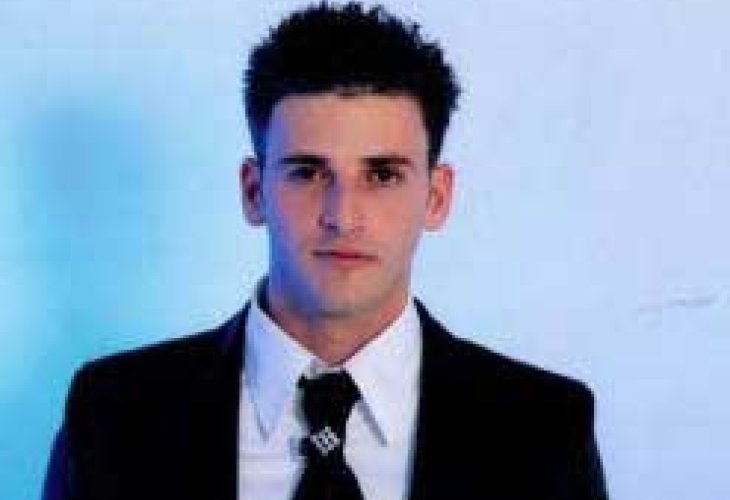Remembering Rabbi Shlomo Zalman Auerbach: A Legacy of Wisdom and Compassion
Reflecting on Rabbi Shlomo Zalman Auerbach's devotion to Torah, profound love for the Jewish people, unwavering faith amidst life's trials, and his care for every Jew as if they were his own child. Rabbi David Ostroff, one of his close students, shares heartfelt memories on the anniversary of Rabbi Auerbach's passing.

It has been 22 years since Rabbi Shlomo Zalman Auerbach passed away, a towering figure of his time. Yet, for those like Rabbi David Ostroff, a devoted student, it feels like it just happened yesterday. "For some, 22 years have passed, but in my mind, it feels like it was just yesterday," he reflects, his voice and eyes still full of emotion.
Rabbi Ostroff studied as a young man at Yeshivat Kol Torah, where Rabbi Auerbach served as Rosh Yeshiva. Over time, he became one of Rabbi Auerbach's closest students, even serving as his personal driver and aide. Today, Rabbi Ostroff is dedicated to teaching Torah and sharing its wisdom with many, often reminiscing about his beloved mentor with love and longing.
Who was Rabbi Shlomo Zalman Auerbach, whose yahrzeit is observed today? Besides leading Yeshivat Kol Torah in Jerusalem's Bayit Vegan neighborhood, Rabbi Auerbach was one of the foremost halachic authorities of his generation, attracting inquiries from around the world. Despite many offers, such as becoming Chief Rabbi of Jerusalem or serving on the High Rabbinical Court, he humbly declined these titles, only accepting the presidency of the organization for family purity.
Rabbi Auerbach's greatness was unanimously recognized by the Torah leaders of his time. Rabbi Moshe Feinstein, another preeminent scholar, regularly sought his counsel. The Chazon Ish, Rabbi Avraham Yeshaya Karelitz, highly respected him. In one instance, when a student of Rabbi Auerbach sought advice from the Steipler, Rabbi Yaakov Kanievsky, about changing yeshivas, he was told, "How can you leave the 'lion' of Jerusalem?"
"Rabbi Auerbach was a man of deeds," Rabbi Ostroff shares. "Despite his incredible talents, he achieved everything through hard work. This proves that anyone genuinely striving can reach such heights, just as he did, even amidst life's challenges."
Rabbi Auerbach's childhood in Jerusalem was during a period of great poverty, where residents scraped walls for sustenance. His mother would divide a single egg among her five children or make patties from wild plants. Young Shlomo Zalman would often selflessly give his portion to his hungry siblings without their parents knowing.
He found solace in Torah study, a domain where he found happiness despite material hardships. His father, Rabbi Chaim Yehuda Leib Auerbach, head of the Kabbalistic Yeshiva Shaar Hashamayim, knew that teaching him Torah was the greatest joy he could give.
Rabbi Ostroff further shares that Rabbi Auerbach possessed a brilliant mind, understanding complex mechanics, aiding him in making significant halachic rulings on technology and medicine, such as artificial insemination and electricity on Shabbat.
As a young man, when the first car arrived in Jerusalem, Rabbi Auerbach's interest lay not in its novelty but in understanding its mechanics for halachic clarity, though ultimately deciding the time away from Torah study wasn't worth it.
Life remained fraught with difficulties even after his marriage. Tragically, three of his children were unable to have children, and one son died in a car accident. Despite his personal losses, Rabbi Auerbach remained a beacon of light, always approachable and joyful, though he privately expressed his inner heartbreak.
Rabbi Ostroff recounts an encounter with a 17-year-old requesting a blessing for his exams, emphasizing Rabbi Auerbach's warm, fatherly demeanor that captivated and comforted the young man.
When one student was gravely injured in a traffic incident, Rabbi Auerbach persistently visited the hospital, offering comfort and encouragement out of deep love and concern, despite the student's unconscious state.
"He recognized how much his visit uplifted the student," Rabbi Ostroff reveals, highlighting Rabbi Auerbach's humility in the face of public recognition, never seeing himself as anything but another Jew.
Even Rabbi Ostroff's memories of his mentor's prayer carry immense emotional weight. Rabbi Auerbach prayed with childlike sweetness and sincerity, to the awe of hospital staff accustomed to quick prayers amid urgency.
Rabbi Auerbach passed away in Adar 5755, with over 300,000 attending his monumentous funeral, each feeling the loss of a father figure, a shepherd the Jewish people dearly missed.
His children, all notable figures in their own right, and numerous students have become leading rabbis and scholars, continuing his legacy of Torah learning and leadership across generations.
"Rabbi Auerbach was more than a father to me," Rabbi Ostroff concludes, tears in his eyes. "Though his physical presence is gone, his influence as a teacher, mentor, and fatherly guide remains with me, as he taught us to think, learn, and live as true Bnei Torah."

